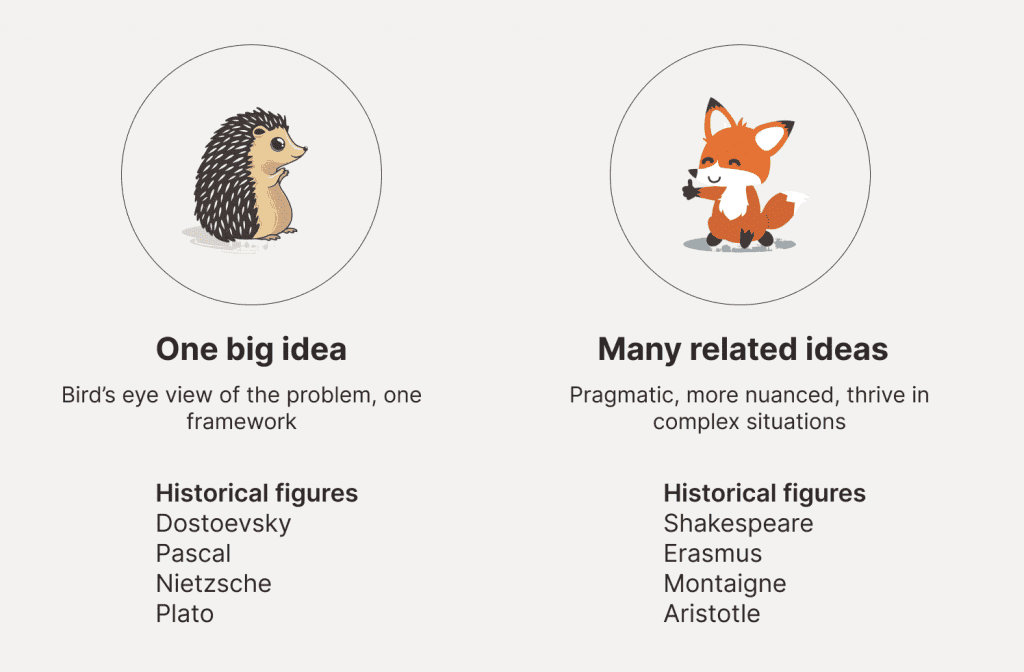These are 30 ideas that changed my life.
1. You are going to die. There is no dress rehearsal for life. This is it. How you live your days is how you live your life.
2. Free will. We see ourselves as agents capable of free choice. Free will stems from our belief that we could have acted otherwise. We had option A and option B, and we were free to choose any of them. We operate with the conviction that we’re the ones who decide how to act or think in each moment. But everything we do next, arises from a set of prior causes. And we have no control over those causes. We didn’t bring them into existence, we didn’t choose them, most of the time, we’re not even aware they exist. (For a more in-depth examination of free will, watch this video.)
3. Birth lottery. Related in a way to the previous point. We don’t choose where we’re born. Who our parents are. The color of our skin. The genetic predispositions that make us what we are. The environment that shapes our upbringing. We don’t have a say over our natural inclinations, what comes easy to us or what we struggle with.
4. Emergence. In biology, or physics, we talk about emergence as the property of a system that is not found in any of its parts, but characterizes the system as a whole.
5. You are not your thoughts. Pay attention to your mind. What are you going to think next? Where do thoughts come from? How do you relate to them?Thoughts have a sticky nature. They lure us into our head and make us believe everything they say. Once I’ve realized that, I’ve learned to not hold onto my thoughts so tightly. They are mere appearances in our consciousness.
6. Hedgehog vs Fox. Looking back in history, we can classify great thinkers into either hedgehogs or foxes. Hedgehogs’ intellectual life is dominated by one big idea, a central unifying piece to their worldview. On the other hand, foxes approach life with more nuance, they entertain numerous ideas at once and are more pragmatic. Hedgehogs are focused on one single philosophy to rule them all, while foxes thrive in uncertainty and complex situations. As a downside, foxes are more prone to self-doubt. Which one are you?
Read more about the origin of this idea here.

7. Pareto Principle. I consider this to be one of the most important mental models. It states that 80% of the consequences come from 20% of the causes. By knowing which levers you need to press to get a meaningful result, you can tailor your actions accordingly.
8. A balanced life is overrated. There’s no formula for success, but being balanced in everything is a formula for failure. When everything is even, nothing stands out. Although it’s undeniable that we benefit from certain aspects in our lives to be constant and predictable, being a little (or a lot) unconventional in how you approach the things that you want to excel at can make a world of difference.
9. JOMO. The more sane version of FOMO. It stands for Joy Of Missing Out. It’s the realization that we can’t possibly attend to everything we find meaningful in life, not even when we eliminate everything that is non-essential. There will always be something important we miss out on. But such is the nature of our finite existence. We choose some things at the expense of others. Celebrate the decisions we do make and appreciate that this is how we wanted to spend our limited time.
10. Compound Interest. It doesn’t only apply to wealth growth. It works in business, relationships and skill learning too. As your knowledge accumulates, you gain a certain capital which you can further invest and your abilities will grow exponentially.
11. Consensus contrarian matrix. Most people become interested in things when they’re already popular, but high returns on investment happen when you’re early to the party. It pays to be observant and place a risky bet on an obscure company or trend, because this is how you generate the most profit, if you’re right, of course.

12. Authenticity. Be who you are. No one can compete with that. Disarm your critics by celebrating your quirkiness and being open about your flaws. No one can hold these against yourself, if you are unapologetic about what makes you you.
13. Framing. Every situation can be viewed differently, depending on what you focus on or what you leave out. The way we frame our view on reality ends up shaping reality itself.
14. Fixed vs Growth Mindset. Psychologist Carol Dweck proposes that there’s two ways of looking at our abilities. We can think in binary terms (we either have what it takes or we don’t) or in incremental steps (we may not yet have what it takes to succeed, but we can get better.) What we believe about our abilities ends up shaping our results.
Read more about this.

15. Deliberate practice. If you want to improve at something, there’s no better exercise than to spend a couple of focused hours a day, specifically targeting the weak areas of your craft. Learning to play an instrument, balance on your hands or write short stories, all these are skills that can be cultivated through a systematic approach to learning. Identify the weak spot, develop a plan to address it (or have a teacher do it for you) and get to work so you can get feedback on your progress. And repeat.
16. Perfectionism. Clutter and mess show us that life is being lived. Either in your house, your mind or the files on your computer. I’m not proposing anyone stops organizing their belongings or thoughts, but there’s a certain level of messiness that’s conductive to growth and innovation. Entropy is the enemy of perfectionism. Clutter is fertile ground where ideas germinate.
17. Unprescribed path. Life is not a video game where you have to waltz through the levels and get to all the check points before the time is up. There is no exact path. And no requirements either. (Other than perhaps being a good person). Just put one foot in front of the other.
18. The 5 year rule. When we’re faced with a tremendous task, especially one that might take years to accomplish, we may feel it’s pointless to even start. But in 5 years, you’ll be 5 years older anyway. You might as well be 5 years older plus closer to where you want to be. No matter how long it’s going to take, it’s not going to get shorter, so just start. Today.
19. Permissionless apprentice. Don’t wait for anyone to validate your ideas. The world rewards audacity more than it does conformity. Deliver value without asking anything in return. Creating with “the garage door up” can also open up incredible avenues.
20. Alter ego. Playing around with your identity can have powerful effects. You can create an alter-ego to achieve a goal your current self would deem impossible. This lets you distance from the “you” you think you are and brings about a more fit person for whatever you’re trying to accomplish. Instead of “fake it til you make it,” think about “being something until you become it.”
21. Luck surface area. Our chances of encountering a great opportunity increase with our luck surface area. This refers to the diversity of people and situations that we expose ourselves to.The more activities we engage in, people we meet and places we go, the more we’ll engineer our own luck.
22. Sprints. They are short bursts of effort, usually no longer than a week (but it can depend on the goal), in which we pick a skill (or project), and aim to systematically get better at it, in a measurable fashion. After the sprint is over, we assess the progress we made. We can tie several sprints together to tackle a bigger goal.
23. Multidisciplinary thinking. When dealing with complex situations, draw from an array of fields and disciplines and apply their principles to problem-solving, decision-making and better understanding of the world. It’s a great approach when learning a new discipline. Instead of taking the straightforward path, you can address the issue from different angles. For example, if you’re trying to learn web design, you can study the fields related to it, such as behavioral psychology, communication and marketing.
24. Filter bubble. The internet can be a dangerous place. If you are not careful, you may find yourself in a filter bubble, a cozy place where everything is in accordance with what you already believe and everything makes sense.
25. Hindsight bias. After an event occurs, in hindsight, there is a bias to see it as having been predictable even though there was no real objective basis on which it could have been predicted.
26. Lateral thinking. This method helps you correlate unusual ideas and find connections that weren’t visible before. It helps fuel your creativity and lets you “think outside the box.”
27. Default effect. People usually stick with the default option. Any extra steps are undesirable. So if you want to convince someone to accept something, make sure it’s by default and that it requires effort to change it. The countries where you’re an organ donor by default have more organ donors than countries in which you have to opt-in yourself.
28. Self-actualization. The highest point on Maslow’s pyramid of needs, it refers to our fulfilled potential. It’s our desire to become our truest self, and it’s achieved after the lower levels needs are met. A few characteristics of self-actualized people include the ability to judge reality accurately, radical self-acceptance, spontaneity, independence and the capacity to enter states of flow.
29. Doing something for its own sake. We can be guided by 2 types of motivation: intrinsic or extrinsic. Extrinsic motivation fuels behaviors that are driven by external rewards: such as getting a raise. Intrinsic motivation drives us for the sole enjoyment of the activity itself. We’re not concerned about the outcome. The activity is rewarding in itself. What’s more, research shows that rewarding an intrinsic-motivated behavior can lead to a sudden disinterest in the behavior and lower performance overall.
30. Mastery can never be reached. Mastery in any craft will always be elusive, but this is precisely the reason why we keep striving for it. We refine our skills and finesse our technique, but we can never quite get there. It’s in this perpetual striving that we find our purpose to continue.



